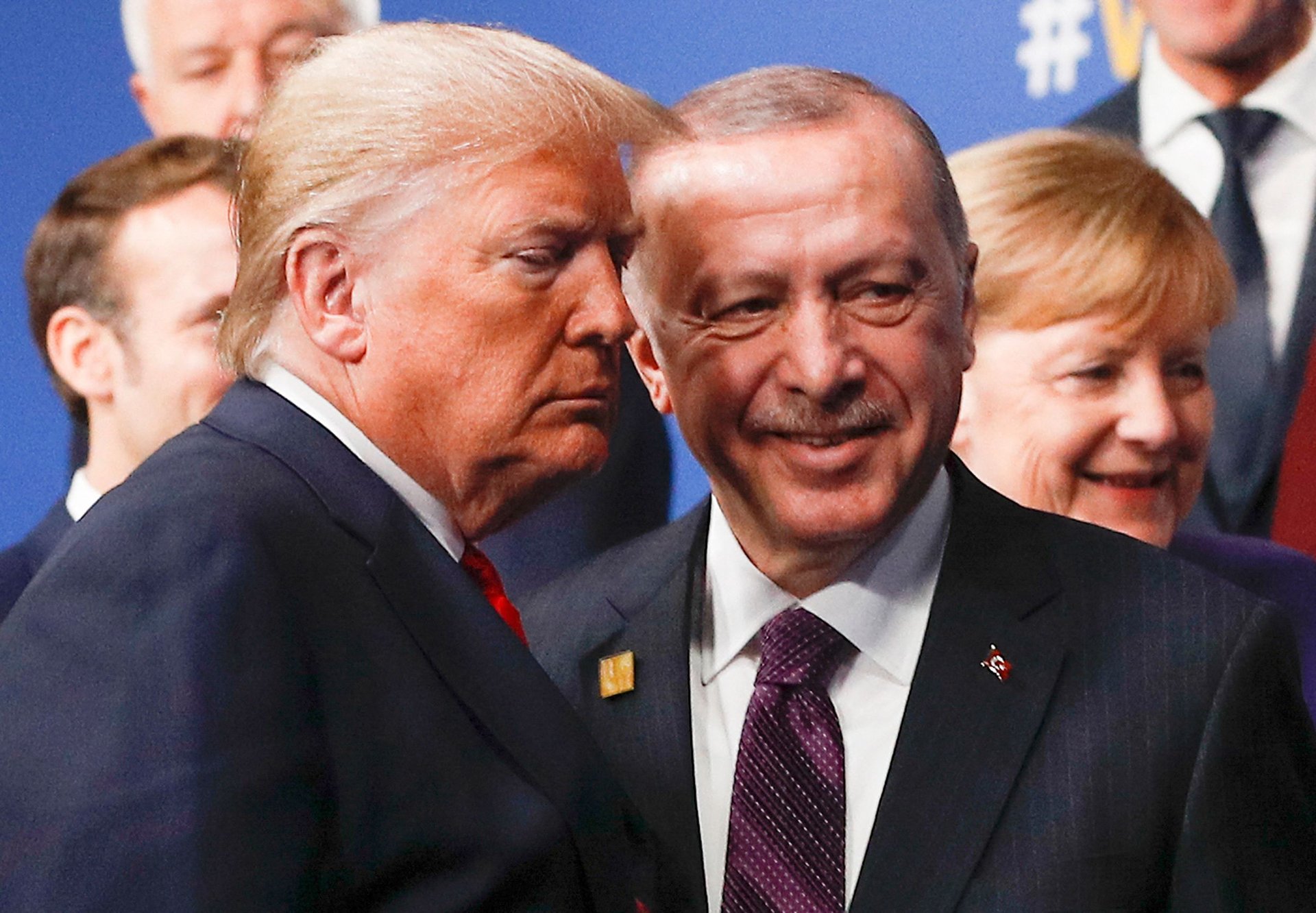Turkey took control of its central bank like Trump wants to. It was a disaster
Turkey's experience in degrading and eventually taking over its central bank is one that holds lessons for Trump as he assails Fed Chair Jerome Powell

President Donald Trump and President Recep Tayyip Erdogan of Turkey during Trump's first term 2019. (PETER NICHOLLS/POOL/AFP via Getty Images)
He surrounded himself with loyalists prone to reinforce his views, and they backed his crusade against the independent central bank. The president had campaigned on supercharging economic growth, and he made his next move to assert control over monetary policy.
In 2018, President Recep Tayyip Erdogan of Turkey proclaimed new authority to pick the next governor of his country's central bank. A year later, he did so, removing Murat Cetinkaya from his post as central bank chief after clashing with him about lowering interest rates. Three of Erdogan’s picks led the Turkish central bank in three years, a carousel of acolytes eager to slash borrowing costs even as inflation climbed. The Turkish lira crashed against the U.S. dollar and lost more than half its value in two years since investors en masse pulled their money from an economy they lost confidence in.
The result was a country left to grapple with skyrocketing inflation, which reached 85% at its worst point in late 2022. It has since fallen by more than half to a still sky-high 35%.
Erdogan’s experience in degrading and eventually taking over the central bank is one that holds lessons for Trump as he assails Federal Reserve Chair Jerome Powell on a near daily basis and flirts with ousting him.
“It is a high-risk and potentially self-defeating effort,” Rebecca Patterson, a senior fellow at the Council of Foreign relations, wrote in a recent New York Times op-ed. “The directional response seems clear: higher long-term borrowing costs for households and businesses and a weaker currency that would support inflation.”
Trump has relentlessly attacked Powell for much of the year and mused about firing him over the Fed holding steady on interest rates. He has demanded that the Fed drop the cost of borrowing by several percentage points, arguing that doing so would reduce the size of interest payments on the national debt. The White House this month has seized on a $2.5 billion renovation of the Fed’s century-old headquarters to build a case to fire Powell due to its cost overruns.
The president himself is set to visit the Fed renovation site on Thursday to keep up the pressure on Powell, who has defended the project and the central bank's monetary policy.
The unending criticism from Trump has raised alarms among investors and analysts who view the Fed’s historic independence as virtually sacrosanct. They say the Fed has been kept insulated from political interference so it can make decisions based on what’s best for the U.S. economy, not the president sitting in the Oval Office at any given time. An attempt to assert authority over the Fed could send investors panicking, shoot up interest rates on long-term debt that underpins mortgages, and topple the pre-eminent status of U.S. Treasury bonds.
Even the subdued Chamber of Commerce came to Powell’s defense on Wednesday afternoon. “The independence of the Fed has a long tradition, that has served the country well for 250 years,” the Chamber said on its website. “Interfering with it now would imperil the smooth functioning of the monetary system and threaten the long-term economic growth of the nation.”
Erdogan’s campaign against orthodox economics was a gamble that didn’t pay off. Turkish inflation only fell once the central bank completed a major u-turn on monetary policy starting in 2023. It required steep and painful double-digit rate increases to crush any vestige of hyperinflation from further embedding into the Turkish economy, which is still slumping along. The central bank has since hiked the interest rate to its current level of 46%, a sharp increase from where it stood at 8.5% two years ago.
The U.S. economy has remained resilient under the weight of Trump’s tariffs being applied to almost all foreign imports. But inflation has ticked up in recent months and remains above the Fed's 2% target, a dynamic that traditionally calls for the Fed to keep a lid on the flow of money to consumers and businesses.
Turkey's experience shows that if Trump fires Powell, all bets are off.
